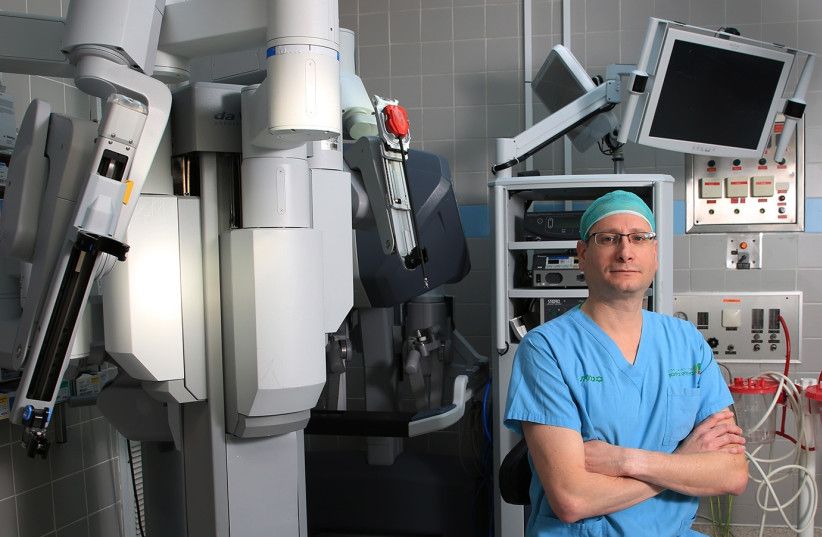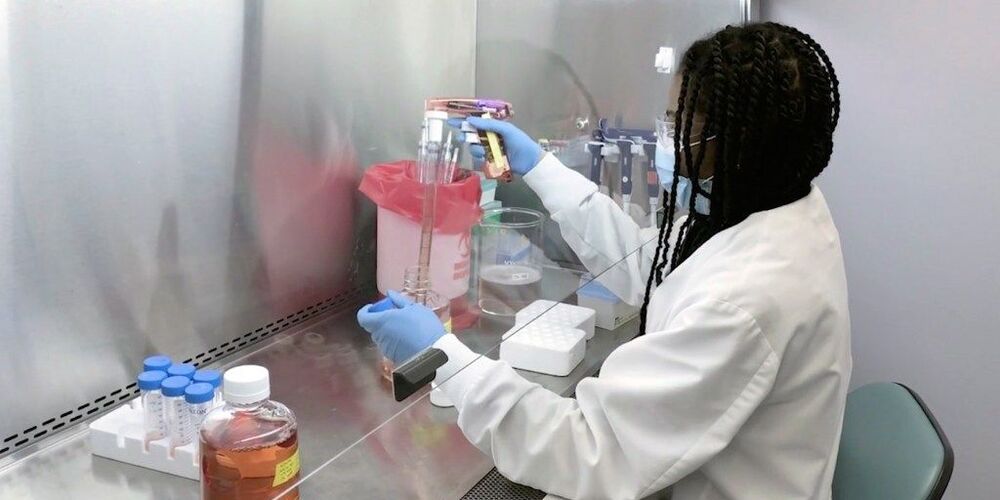Chinese upstart companies and IT goliaths hope to turn country’s artificial intelligence prowess into world-leading drug innovation. Do they have an edge over Western players?


It looks like the superbug still has a lot other “surprises” for us. There was the black fungus, now we have bone death(osteonecrosis). And this can reveal itself 1 to 2 months after recovery. A painful goodbye present, perhaps?
After Mucormycosis, a new disease that causes the death of bone tissues is posing new threats for Covid-19 survivors. Three confirmed cases of ‘Bone Death’ have already been reported in Mumbai’s Hinduja Hospital. The 3 patients, under the age of 40, developed the disease 2 months after they were treated for Covid-19.
What is bone death? What are the symptoms of ‘bone death’? How is COVID-19 triggering ‘death of bone tissues’? Doctor explains.
#BoneDeath. #NewPostCovidDisease. #WhatIsBoneDeath. #AvascularNecrosis.
Crux is your daily dose of the big, viral and relevant news in a few minutes. It’s your ultimate guide to staying informed on the latest in politics, international relations, sports, entertainment and social media.
Bio-Digital Twins, Quantum Computing, And Precision Medicine — Mr. Kazuhiro Gomi, President and CEO, and Dr. Joe Alexander, MD, Ph.D., Director, Medical and Health Informatics (MEI) Lab, NTT Research.
Mr. Kazuhiro Gomi, is President and CEO of NTT Research (https://ntt-research.com/), a division of The Nippon Telegraph and Telephone Corporation, commonly known as NTT (https://www.global.ntt/), a Japanese telecommunications company headquartered in Tokyo, Japan. Mr. Gomi has been at NTT for more than 30 years and was involved in product management/product development activities at the beginning of his tenure. In September of 2009, Mr. Gomi was first named to the Global Telecoms Business Power100 — a list of the 100 most powerful and influential people in the telecoms industry. He was the CEO of NTT America Inc. from 2010 to 2019 and also served on the Board of Directors at NTT Communications from 2012 to 2019. Mr. Gomi received a Masters of Science in Industrial Engineering from the University of Illinois at Urbana-Champaign, and a Master of Science in Electrical Engineering from Keio University, Tokyo. Mr. Gomi is a member of the board at US Japan Council, a non-profit organization aimed at fostering a better relationship between the US and Japan.
Dr. Joe Alexander, is Director of the Medical and Health Informatics (MEI) Lab at NTT Research, where he oversees the MEI Lab research in multi-scale Precision Cardiology platforms such as the cardiovascular bio-digital twin, as well as heart-on-a-chip technology, specifically aimed at developing the infrastructure for a digital replica of an individual’s heart. In addition, the MEI Lab is working on nano-and micro-scale sensors and electrodes, other organ-on-a-chip micro-fluidics technologies, as well as wearable and remote sensing to support future bio-digital twin applications.
Before coming to NTT Research, Dr. Alexander spent 18 years at Pfizer, Inc., where he had most recently served as Senior Medical Director, Global Medical Affairs, working in cardiovascular medicine, worldwide clinical imaging and measurement technologies, medical devices and pulmonary hypertension, and regularly conducting modeling and simulation research in many of these areas. He previously worked for two years at Merck, Inc. and spent eight years at Vanderbilt University, where he completed a two-year residency in internal medicine and served as a professor of medicine and biomedical engineering. Dr. Alexander obtained his M.D. and Ph.D. (in biomedical engineering) degrees at the Johns Hopkins University School of Medicine.

Is there ever really a good time to launch a startup?
That’s the question Javier Luraschi was asking and sort of answering for himself in discussing his effort to “democratize artificial intelligence” through his new company called Hal9.
And while getting a startup off the ground is challenging enough under normal circumstances, Luraschi made his move during the COVID-19 pandemic and while suffering the effects of and searching for answers to long COVID, a condition in which people experience symptoms of the illness for extended periods of time.


For the first time in Israel, a doctor at Beilinson Hospital in Petah Tikva has used a da Vinci robot to perform the complex surgery of untrapping a man’s ureter from behind his vena cava — the largest vein in the body that carries blood to the heart from other areas.
Last month, a 41-year-old patient checked in to Beilinson suffering from the effects of retrocaval ureter, a ureter that abnormally encircles the inferior vena cava. Only one in 1500 people are born with this deformity, which worsens over decades until eventually it leads to sepsis.
With a retrocaval ureter, the ureter passes behind the large vein instead of in front of it or right by it. The only way to cure the person is to perform a complex operation to move the ureter.
Usually “open” surgery is performed, meaning the patient is cut open. But Dr. Shay Golan, head of the Urologic Oncology Service at Beilinson, decided to try something new and, for the first time in Israel, a robot performed the surgery in 50 minutes, making only three very small incisions (each less than 1 centimeter) in his belly and without any blood loss.
Dr. Shay Golan, head of the Urologic Oncology Service at Beilinson Hospital, decided to try something new and, for the first time in Israel, a robot performed the surgery in 50 minutes.

When the Human Genome Project reached its ambitious goal of mapping the entire human genome, it seemed the world was entering an era of personalized medicine, where evidence from our own specific genetic material would guide our care.
That was 2003, and nearly a generation after that spectacular collaborative achievement, we are still waiting for that promise to materialize. We may know that a person carries a gene associated with breast cancer, for example, but not whether that person will go on to develop the disease.
New research by McMaster University evolutionary biologist Rama Singh suggests the reason is that there is another, hidden layer that controls how genes interact, and how the many billions of possible combinations produce certain results. That layer is composed of largely uncharted biochemical pathways that control gene expression in cells through chemical reactions.

A Skolkovo tech company presents its 3D printing production technology for prosthetic limbs.
Follow us on Telegram https://t.me/rtintl / https://t.me/rtvisual

Modified RNA CRISPR boosts gene knockdown in human cells.
In the latest of ongoing efforts to expand technologies for modifying genes and their expression, researchers in the lab of Neville Sanjana, PhD, at the New York Genome Center (NYGC) and New York University (NYU) have developed chemically modified guide RNAs for a CRISPR system that targets RNA instead of DNA. These chemically-modified guide RNAs significantly enhance the ability to target – trace, edit, and/or knockdown – RNA in human cells.
Longevity. Technology: In the study published in Cell Chemical Biology, the research team explores a range of different RNA modifications and details how the modified guides increase efficiencies of CRISPR activity from 2-to 5-fold over unmodified guides. They also show that the optimised chemical modifications extend CRISPR targeting activity from 48 hours to four days.
Increasing the efficiencies and “life” of CRISPR-Cas13 guides is of critical value to researchers and drug developers, allowing for better gene knockdown and more time to study how the gene influences other genes in related pathways.
The researchers worked in collaboration with scientists at Synthego Corporation and New England BioLabs, bringing together a diverse team with expertise in enzyme purification and RNA chemistry. To apply these optimised chemical modifications, the research team targeted cell surface receptors in human T cells from healthy donors and a “universal” segment of the genetic sequence shared by all known variants of the RNA virus SARS-COV-2, which is responsible for the COVID-19 pandemic.